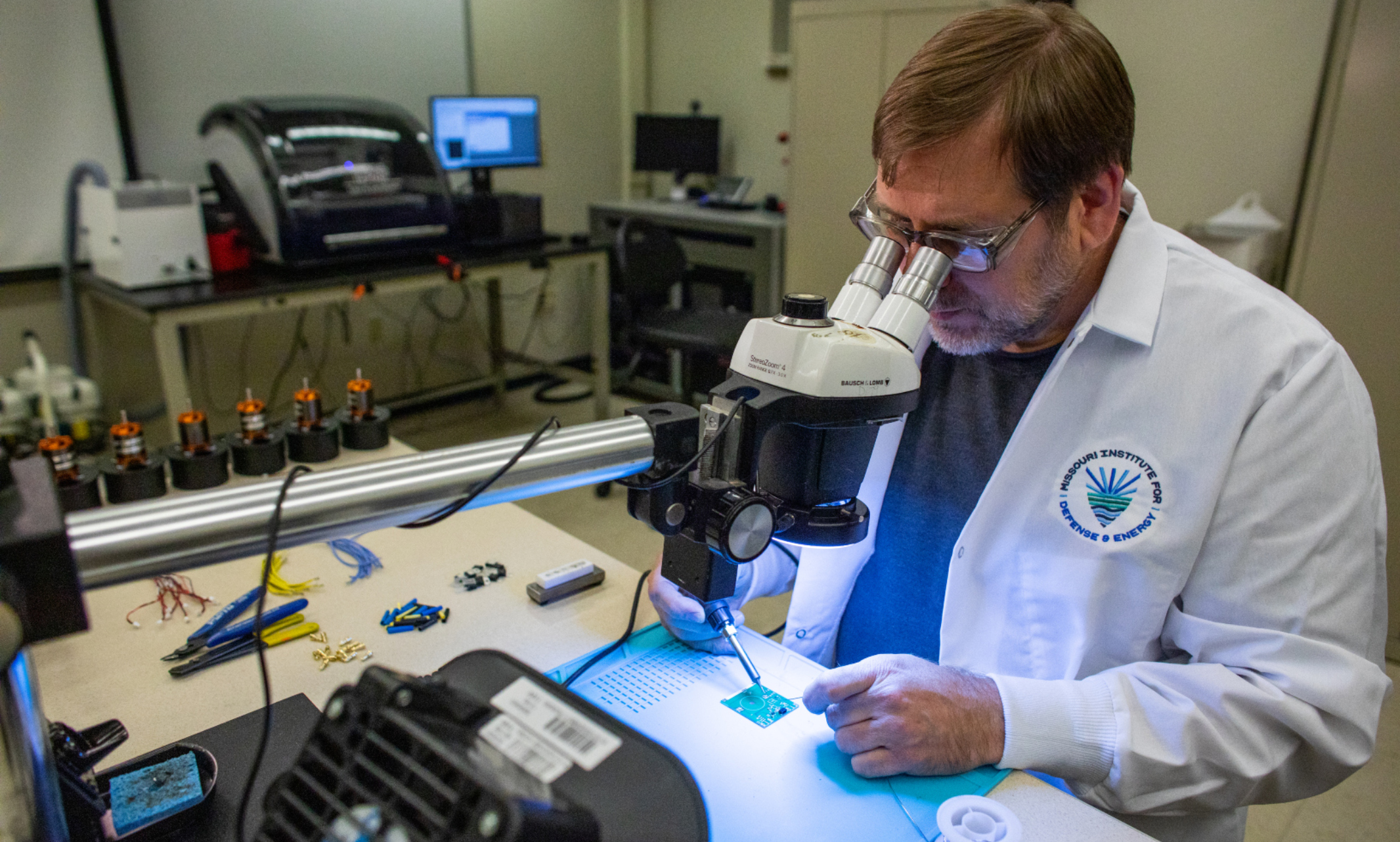The University of Missouri-Kansas City on behalf of the University of Missouri System has received a $1 million 24-month federal cooperative agreement to lead the development of a microelectronics hub across Missouri and Kansas.
The $999,480 award from the National Science Foundation’s Regional Innovation Engines Program is funded through the CHIPS and Science Act, signed into law earlier this year, to significantly boost U.S. production of microchips and other microelectronic components.
The initial cooperative agreement will launch Critical Materials Crossroads, an industry, government and academic team working to establish a microelectronics base in the Midwest and promote technical and economic development in the region. This planning award could lead to $160 million in additional funding over the next 10 years to help launch new businesses and educate the future critical-materials workforce.
This collective will leverage partnerships with universities and businesses in Kansas and Missouri to drive the growth needed for this new hub, providing microelectronics manufacturers with the needed workforce, materials and innovation to develop domestically sustainable and profitable critical goods.
According to the original proposal, goals for the collective include:
- Coordinate, facilitate and mentor creation of about 70 small businesses in Missouri and Kansas, which will account for more than 4% of the two states’ Gross Domestic Product (GDP) by 2032, creating an average of 1,000 new jobs per year.
- Become the one-stop solution for regional microelectronic needs and generate an increasing corporate footprint and business relocation from other regions.
- Create and maintain a pipeline of targeted degree/certificate holders to meet workforce needs.
- Be the catalyst and trusted partner for U.S. microelectronics industrial base research.
- Launch entities to provide centralized business support services and funding for startups.
- Supply a significant amount of mid-tier microelectronics critical materials to U.S. prime-tier manufacturers by 2030.
“UMKC is proud to take the lead on behalf of the University of Missouri System and its four universities on this exciting effort to create a new industrial base in our region focused on computer chips and other microelectronics,” said UMKC Chancellor Mauli Agrawal. “The potential for business formation and job creation is extraordinary, and we’ll be working with partners throughout Missouri and Kansas to make it happen.”
Anthony Caruso, Curators' Distinguished Professor of Physics and Electrical Engineering and UMKC Associate Vice Chancellor for Research, is the principal investigator for the grant.
“Our goal is to realize a self-sustaining Kansas-Missouri microelectronics industrial base that will become profitable without the need for government subsidy,” Caruso said. “That requires reinventing manufacturing practices. To meet this grand challenge, the team will focus on synergistic and symbiotic partnerships that leverage the unique natural resources, manufacturing and transportation capacity of Missouri and Kansas. The ultimate goal is to develop marked improvements in regional educational attainment and economic growth.”
Microelectronics – specifically semiconductors or computer chips – underpin many aspects of day-to-day life, including medical equipment, cars, industrial machinery and consumer electronics. U.S. semiconductor manufacturing has declined significantly since the early 1990s, leaving the country reliant on imported microelectronics, which many see as a threat to both economic growth and national security.
The team includes institutions of higher education, representation from local and state governments and industry partners, including all four universities in the UM System, the University of Kansas, Kansas State University, Wichita State University, Central Missouri State University, Wichita State University Tech, Lincoln University, Harris-Stowe State University, St. Louis University, Metropolitan Community College, Integra Tech, Nitride Global, EaglePicher, MEMC-Global Wafers, Radiation Detection Technologies, Brewer Science, Doe Run, Enersys, U.S. Strategic Metals, ThREE, KC Rising, National Security Crossroads, KC Area Development Council, KC Digital Drive, Missouri Department of Economic Development, PortKC, Greater Kansas City Chamber of Commerce, Missouri Tech Alliance, Entrepreneurship KC, KC Rising, Ewing Marion Kauffman Foundation and startups Homebase, Bravas, Balto, Pierian, Torch, Potter, Nidec, Digital Ally and Crosstalk.

